Johannesburg, the vibrant heart of South Africa, offers a compelling journey into the country’s tumultuous past. At the Apartheid Museum, visitors confront the harsh realities of racial segregation, while Soweto, a dynamic township, echoes with stories of resilience and the fight for freedom. From the iconic FNB Stadium to the Hector Pietersen Museum, this exploration uncovers the complexities of South Africa’s history and the enduring spirit of its people. As one delves deeper into this captivating narrative, the true significance of these sites becomes increasingly apparent, inviting further discovery.
Good To Know
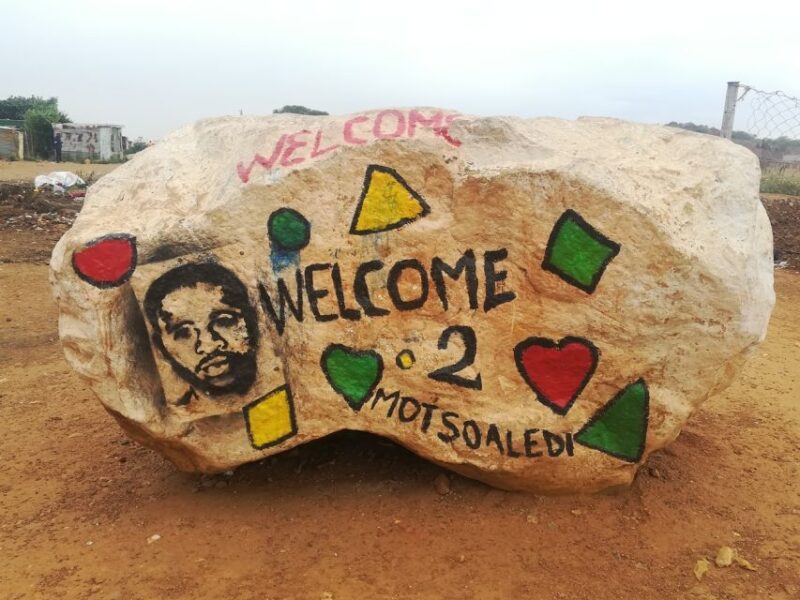
- Explore Johannesburg’s historical sites, including Constitution Hill, which highlights the struggles against apartheid and the journey to democracy.
- Visit the Apartheid Museum for a comprehensive understanding of the apartheid system, its impacts, and the resistance and reconciliation efforts in post-apartheid South Africa.
- Experience the iconic FNB Stadium, which hosted the 2010 FIFA World Cup Final, and learn about its historical significance in South Africa’s sports heritage and journey to democracy.
- Discover Soweto’s cultural diversity, including the Diepkloof housing, Chris Hani Baragwanath Hospital, and Vilakazi Street, home to Nobel Peace Prize winners Nelson Mandela and Desmond Tutu.
- Honor Nelson Mandela’s legacy by visiting the Hector Pietersen Museum, which chronicles the 1976 Soweto Student Uprising and its pivotal role in the anti-apartheid movement.
Exploring Johannesburg’s History
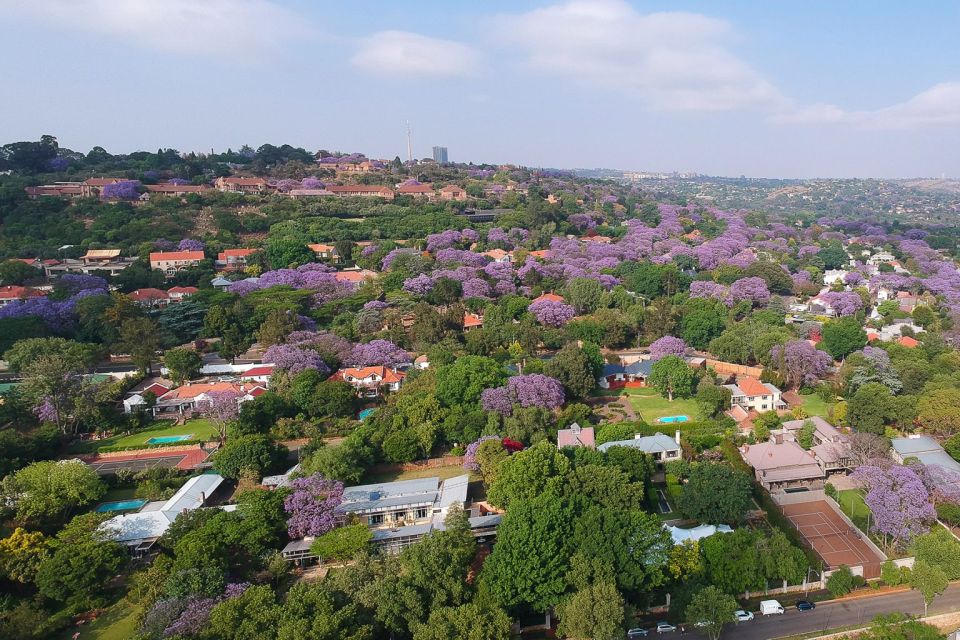
On the tour of Johannesburg, visitors explore the city’s complex past by exploring Constitution Hill, a former prison that now serves as the home of South Africa’s Constitutional Court.
This site showcases the country’s journey to democracy, providing a powerful reminder of the struggles against apartheid. Guests learn about the harsh conditions endured by political prisoners, including Nelson Mandela, and gain insights into the legal system’s transformation.
Through this thought-provoking experience, travelers gain a deeper understanding of Johannesburg’s history and the sacrifices made to achieve social justice and equality.
You can also read our reviews of more tours and experiences in Johannesburg.
Visiting the Apartheid Museum
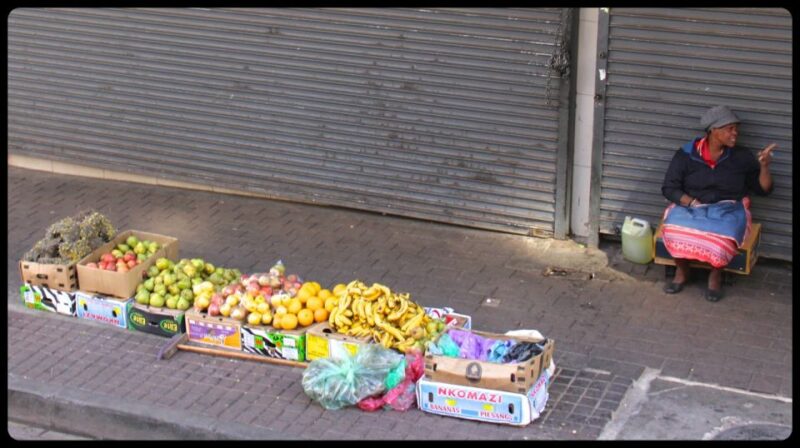
The Apartheid Museum stands as a poignant reminder of South Africa’s tumultuous past. Within its walls, visitors embark on a journey through the nation’s complex history, confronting the realities of the apartheid system. The museum’s exhibits are meticulously curated, offering a comprehensive understanding of the struggle for racial equality.
| Exhibit Highlights | Description |
|---|---|
| Segregation | Illustrates the institutionalized separation of races under apartheid. |
| Resistance | Showcases the courageous efforts of those who fought against oppression. |
| Reconciliation | Explores the nation’s path towards healing and unity in the post-apartheid era. |
Exploring the Apartheid Museum is a deeply moving and educational experience, allowing visitors to gain a profound appreciation for South Africa’s ongoing transformation.
Experiencing the FNB Stadium
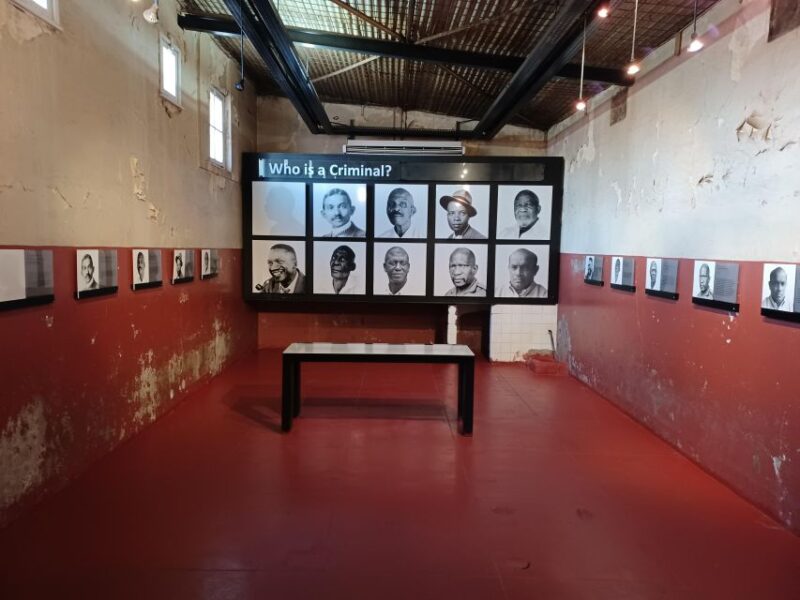
Visitors explore the expansive FNB Stadium, an iconic venue that hosted the thrilling 2010 FIFA World Cup Final.
The stadium’s sheer size and atmospheric design leave a lasting impression. Guides share the stadium’s history, highlighting its role in South Africa’s journey to democracy.
Guests marvel at the pitch where the world’s best players competed. They can even stand on the very spot where the trophy was lifted, capturing memorable photos.
The FNB Stadium stands as a testament to South Africa’s resilience and sports prowess, offering a glimpse into the country’s vibrant culture and passion for the beautiful game.
Discovering Soweto’s Vibrant Culture
After exploring the iconic FNB Stadium, the tour ventures into the vibrant heart of Soweto, a township with a rich history and resilient spirit.
Visitors discover the Diepkloof housing, marveling at the scale and diversity of the neighborhood. The tour then heads to the Chris Hani Baragwanath Hospital, one of the largest hospitals in the world.
Next, the group admires the Soweto Towers, a landmark of the community. The highlight is Vilakazi Street, home to Nobel Peace Prize winners Desmond Tutu and Nelson Mandela.
Travelers can explore Mandela’s former home and browse local shops for souvenirs. The Hector Pietersen Museum provides an overview of the 1976 Soweto Student Uprising, a pivotal moment in the anti-apartheid movement.
More Great Tours NearbyHonoring Mandela’s Legacy
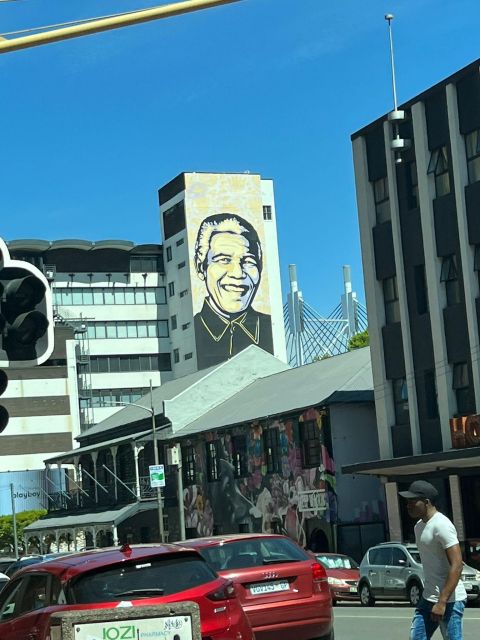
Honoring Mandela’s legacy, the tour explores the iconic Vilakazi Street, where the homes of two Nobel Peace Prize winners – Nelson Mandela and Desmond Tutu – stand as testaments to their unwavering commitment to democracy and equality.
Visitors can step inside the Mandela House Museum to gain a deeper understanding of the former president’s life and his pivotal role in the anti-apartheid movement.
Further along, the Hector Pietersen Museum provides an overview of the 1976 Soweto Student Uprising, a seminal event that galvanized the fight against oppression.
These poignant sites serve as powerful reminders of the sacrifices and triumphs that paved the way for a free and inclusive South Africa.
Exploring Soweto’s Landmarks
The tour venture beyond the iconic Vilakazi Street, immersing visitors in the vibrant tapestry of Soweto’s landmarks.
At the FNB Stadium, the site of the 2010 FIFA World Cup final, guests gain insight into South Africa’s sporting heritage.
Next, they explore the sprawling Chris Hani Baragwanath Hospital, one of the largest hospitals globally.
The tour culminates at the Soweto Towers, a striking landmark offering panoramic views of the township.
Throughout the journey, travelers gain a deeper understanding of Soweto’s resilience and the ongoing transformation of this dynamic community, a testament to South Africa’s remarkable progress since the end of apartheid.
Gaining Insights at Hector Pietersen Museum
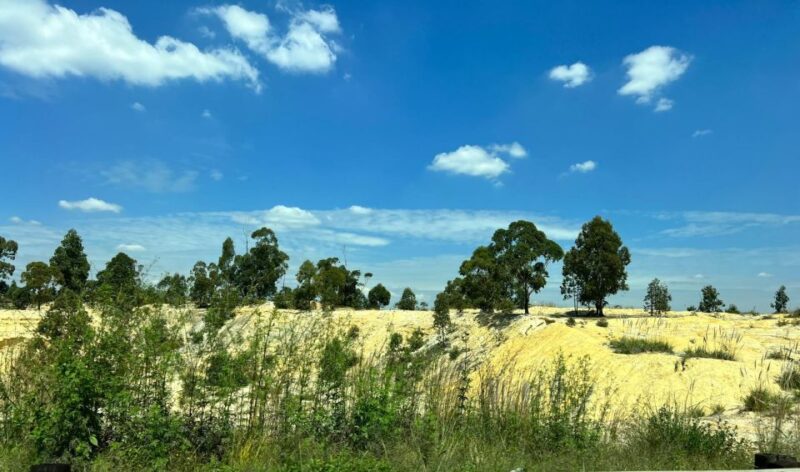
Frequently, the tour takes visitors to the Hector Pietersen Museum, which provides an overview of the 1976 Soweto Student Uprising.
The museum chronicles the events that sparked the protests against the imposition of Afrikaans as the language of instruction in black schools. Visitors learn about the tragic death of 12-year-old Hector Pietersen, whose photograph became an iconic image of the uprising.
The museum’s exhibits and multimedia displays offer a somber but powerful glimpse into this pivotal moment in South Africa’s history, highlighting the courage and sacrifice of the student protesters who stood up against the apartheid regime.
The museum serves as a poignant reminder of the struggles and sacrifices that paved the way for South Africa’s eventual transition to democracy.
Tour Logistics and Feedback
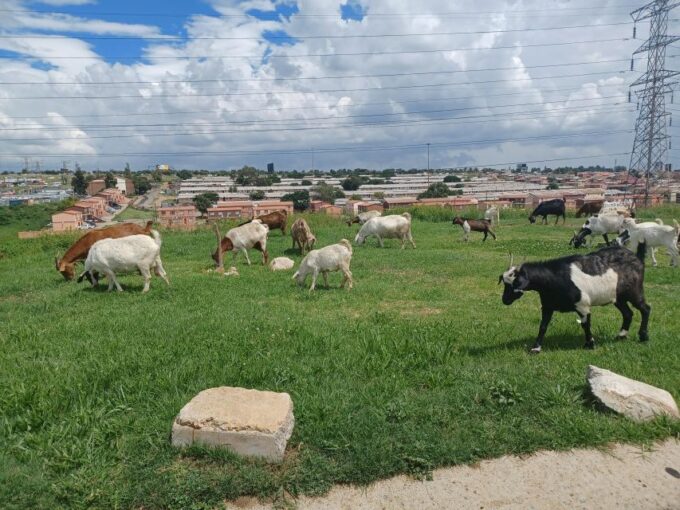
Beyond the poignant lessons learned at the Hector Pietersen Museum, the tour also provides an insightful look at the logistics and feedback surrounding this immersive Johannesburg and Soweto experience.
The tour duration may vary based on group size, with smaller groups potentially completing the tour faster. Plus, the tour delivery is based on the outlined itinerary, ensuring a structured and comprehensive exploration.
Overwhelmingly positive customer feedback, with a 5/5 rating based on one review, further underscores the value of this tour for couples, families, and solo travelers alike.
- Tour duration may vary based on group size.
- Tour delivery based on outlined itinerary.
- Overwhelmingly positive customer feedback with a 5/5 rating.
Frequently Asked Questions
Is There an Option to Customize the Tour Itinerary?
The tour appears to have a fixed itinerary, but customers can likely request minor modifications if needed. Flexibility may be limited, as the tour is structured to provide a rundown of the key highlights in the given timeframe.
How Accessible Is the Tour for Travelers With Disabilities?
The tour offers accessibility for travelers with disabilities. Pickup/drop-off, bottled water, and gratuities are included. Some sites may have limited accessibility, so it’s recommended to contact the tour provider to discuss specific needs in advance.
Can I Request a Specific Language for the Live Tour Guide?
Yes, travelers can request a specific language for the live tour guide. The tour company provides guides who speak English, but they may be able to accommodate other language requests if available.
Are There Any Age Restrictions or Requirements for the Tour?
The tour doesn’t have any age restrictions or requirements. It’s suitable for travelers of all ages, whether they’re couples, families, or solo travelers. Children can join the tour as well.
Do I Need to Bring Any Additional Items or Gear for the Tour?
Participants don’t need to bring any additional items or gear for the tour. The tour includes bottled water and covers all entry tickets, so guests can simply show up ready to explore the sites.
The Sum Up
Johannesburg’s Apartheid Museum and Soweto provide a powerful window into South Africa’s turbulent past. Visitors can explore the harsh realities of racial segregation, explore the resilience of the township, and honor the legacy of those who fought for freedom. These poignant experiences offer profound insights into the nation’s history and the ongoing journey towards reconciliation.
You can check availability for your dates here:More Museum Experiences in Johannesburg
More Tour Reviews in Johannesburg
Not for you? Here's more nearby things to do in Johannesburg we have reviewed
- Soweto Heritage: Tour South Africa’s Historistic Township
- Soweto: Guided Bicycle Tour with Lunch
- Soweto Street Food & Beer Walk
- Soweto: Full Day Tour
- Cultural Experience Just Outside Johannesburg
- Johannesburg: Cradle of Humankind & Harties Aerial Cableway
- Johannesburg: Half-Day Soweto Tour with a Local Guide
- Pilanesberg Game Reserve Full Day Safari
- 5 Days 4 Nights Safari Tour In Madikwe And Pilanersbeg
- Full Day Soweto, Johannesburg and Apartheid Museum Tour
- Full-Day Tour of Soweto, Johannesburg, and Apartheid Museum
- Soweto & Nelson Mandela House Visit
